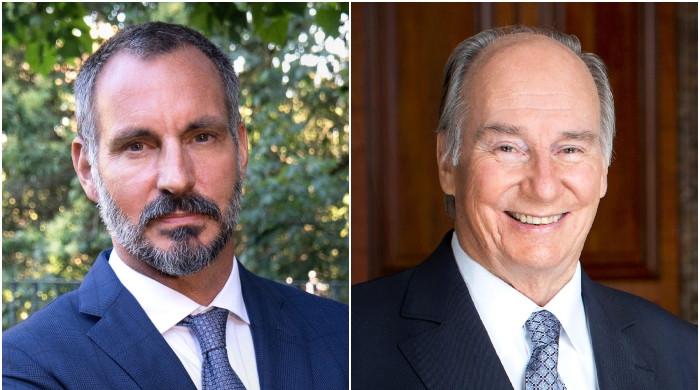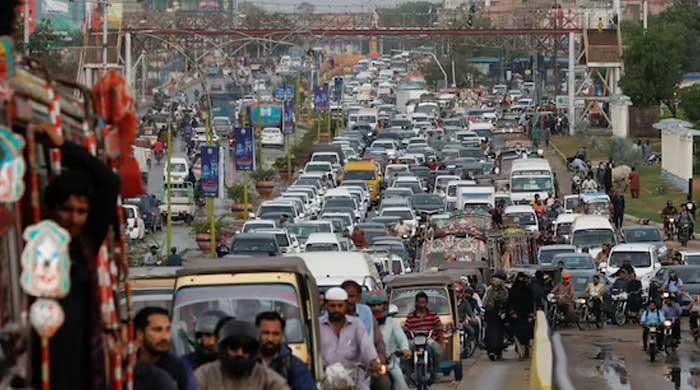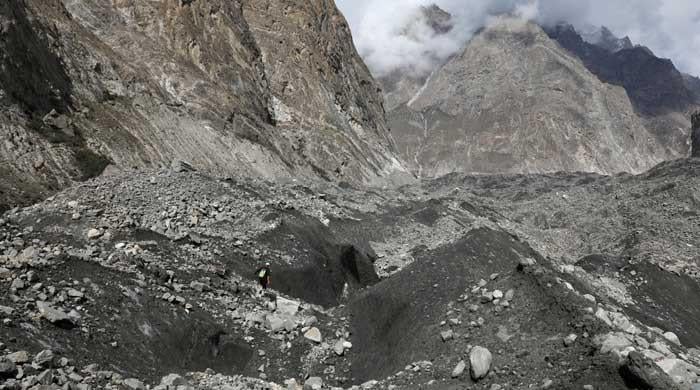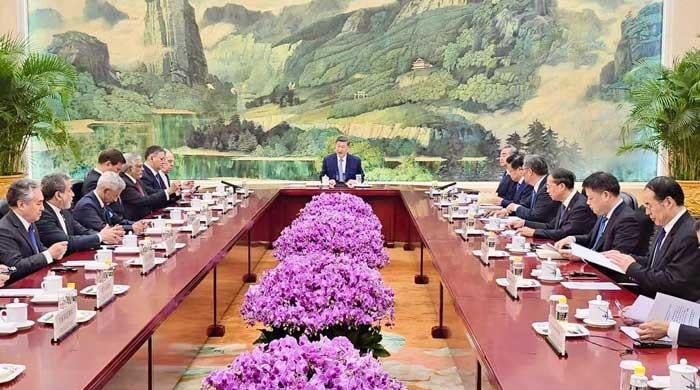Lines of control: Beyond the ceasefire
Let this ceasefire mark a turning point where the world exposes agendas, holds accountable and affirms a commitment to truth, justice, coexistence and lasting peace
May 17, 2025
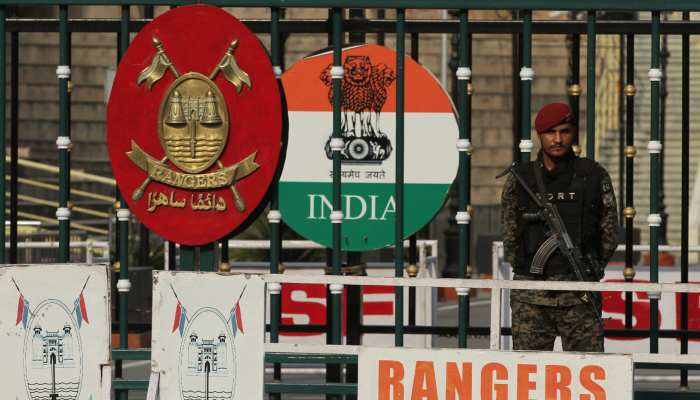
The ceasefire declared on May 10, 2025, between Pakistan and India is a fragile window, a critical moment to prioritise truth, accountability and justice over reckless propaganda and manufactured aggression.
The April 22 attack in Pahalgam, which tragically claimed 26 lives, including 25 tourists, has laid bare the fragile security fabric of Indian Illegally Occupied Jammu and Kashmir (IIOJK. Rather than confronting the systemic failures within India’s security apparatus, that is one of the most militarised regions in the world, with over 700,000 troops, surveillance drones and facial recognition systems, the Modi government swiftly deflected blame onto Pakistan. This dangerous pattern of distraction threatens regional peace and hides India’s internal shortcomings.
In a region heavily monitored by advanced surveillance technologies, the idea that heavily armed attackers could operate undetected for hours in Pahalgam underscores a glaring intelligence failure, not a foreign conspiracy. Rather than launching a transparent investigation, India has resorted to unverified claims, anonymous sources and untraceable phone messages to pin blame on Pakistan. Analysts and users on platforms have highlighted discrepancies in India’s timeline and the lack of forensic evidence. This mirrors the politicisation of the 2019 Pulwama attack, which was exploited to boost Modi’s electoral prospects.
Indian activists, including (but not limited to) Arundhati Roy have publicly questioned the Modi led government’s rush to externalise blame, warning that such tactics erode trust and fuel division. Pakistan by contrast, has taken a principled stance, calling for a UN-led fact finding mission to ensure impartiality, a proposal India has repeatedly rejected, raising doubts about its commitment to truth.
India’s response to Pahalgam was not defensive but ideological. On May 7, 2025, India launched strikes on civilian and religious sites in Pakistan and Azad Kashmir. These actions violate Article 51 of the UN Charter, which permits force only in response to a clear armed attack. India has provided no credible evidence linking Pakistan to the Pahalgam attack, making these strikes a breach of Article 2(4) of the UN Charter and a potential war crime under the Geneva Conventions, as noted in the International Court of Justice’s 1986 ruling in Nicaragua v United States.
Equally alarming is India’s unilateral suspension of the Indus Waters Treaty, which ensures equitable water sharing for Pakistan, crucial to its agriculture and the livelihoods of 40 million farmers who depend on it. This suspension violates the treaty’s clauses, “The Environmental Modification Convention” and Article 21 of India’s Constitution, which guarantees “life and liberty”. Pakistan should NEVER compromise on this even after the ceasefire and the ripple effects, which include but are not limited to food insecurity, economic collapse and mass displacement, which could destabilise the region for decades.
These actions reflect the ideological influence of Hindutva, the extremist nationalist ideology propagated by the Rashtriya Swayamsevak Sangh (RSS), the ideological parent of Modi’s Bharatiya Janata Party. Hindutva’s supremacist vision, which targets India’s 200 million Muslims and suppresses dissent, draws inspiration from authoritarian playbooks, including Nazi Germany’s ethnic nationalism and Israel’s militarised policies under Benjamin Netanyahu, his predecessors and also eventually exposing Modi as the “Buther of Gujrat”. The RSS’s founders openly praised Hitler’s methods of social control, and today’s policies echo these precedents. Hindutva’s rise mirrors the global surge of such movements that thrive on fear and division; if that doesn’t work, then they deceive and appeal to greed.
Like Netanyahu’s bombings of civilians in Gaza and Lebanon, condemned for violating Article 51 of Protocol I to the Geneva Conventions, India’s May 7 attacks reflect a belief in impunity, bolstered by select Western allies. However, India’s aggression has backfired. Pakistan’s diplomatic counteroffensive, supported mainly by China, then Turkey and then the OIC which has exposed India’s violations. China has pledged to raise India’s treaty violations at the UN Security Council, while Turkey has rallied OIC members to demand accountability. The G7’s call for de-escalation, the OIC’s condemnation and UN Secretary General Antonio Guterres' appeal for adherence to humanitarian law have strengthened Pakistan’s position internationally and diplomatically.
Despite its right to self-defence, Pakistan chose restraint, demonstrating moral high ground, courage, and the upper hand. It has condemned all civilian violence, pursued backchannel diplomacy and provided humanitarian aid to families displaced by India’s strikes in Azad Kashmir. Pakistan’s proposal for a UN-led investigation and its alignment with allies like China, Turkey and KSA also demonstrate its commitment to peace.
Pakistan is now poised to escalate its case internationally, and it will notify the UN Security Council of India’s violations, invoking the “Uniting for Peace resolution” if a veto blocks action. It can file war crimes cases at the International Criminal Court under Article 8 of the Rome Statute and approach the International Court of Justice to address the treaty suspension. The Kashmir issue, governed by UN Security Council Resolutions 47, 51, 80 and 91, must be re-internationalised to spotlight India’s human rights abuses, as documented in the UN Office of the High Commissioner for Human Rights 2023 report, which detailed over 1000 arbitrary detentions.
The Pahalgam tragedy and India’s subsequent aggression serve as a wake-up call. Hindutva’s supremacist ideology, armed with nuclear potential and emboldened by global impunity, endangers not just South Asia but the entire world. Without accountability, deterrence fails. Without truth, peace remains elusive.
Journalists must scrutinise India’s claims, demanding evidence over conjecture. Scholars must expose Hindutva’s ideological roots, drawing parallels to global extremist movements. Citizens must amplify Pakistan’s call for justice on platforms where discussions are challenging India’s narrative. Policymakers must support UN-led investigations and legal action to ensure that this ceasefire becomes a foundation for peace.
Let this ceasefire mark a turning point where the world exposes agendas, holds accountable and affirms a commitment to truth, justice, coexistence and lasting peace.
The author is a law student and youth activist with strong interest in student roles and leadership with civic engagement. He writes on law, politics, social sciences, public policy, and philosophy. He can be reached via email: [email protected]




